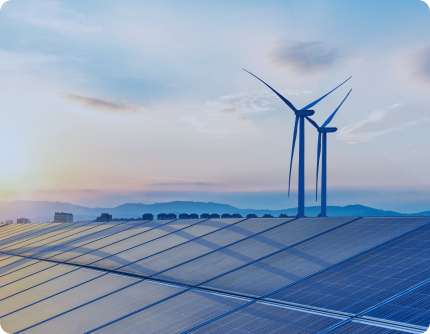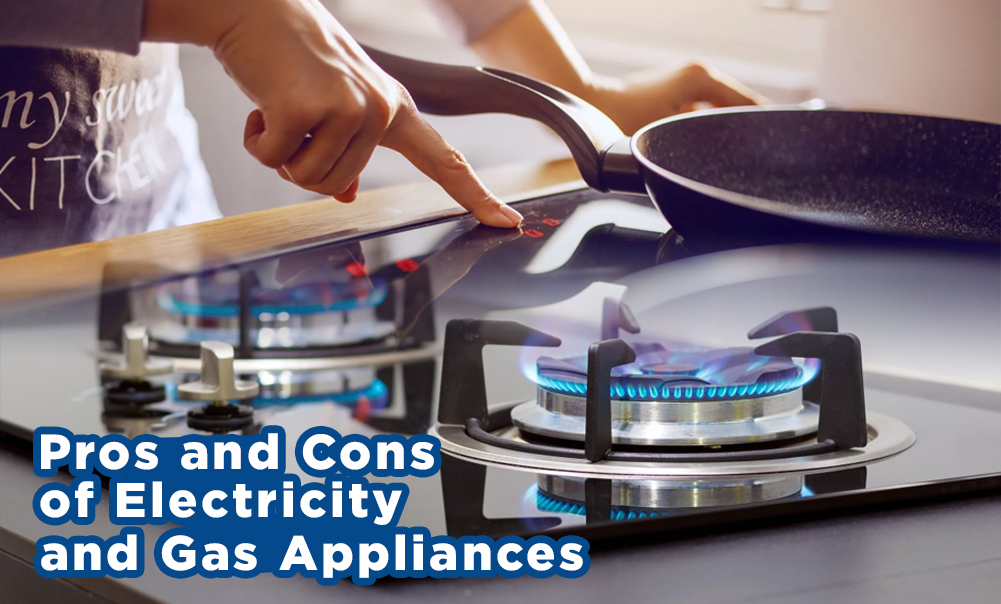When choosing the right appliances for your home, it is important to consider whether you would want them to use gas or electricity. We have outlined the pros and cons for both gas and electricity appliances to help you make the right choice.
4 things to consider when choosing between gas or electric appliances
1. Running Costs
Electricity
When using electricity, you will be charged by kilowatt-hour (kWh). There can be additional charges depending on the state you live in, your distribution network, and the tariff structure of your plan.
Below are the most common power tariffs in Australia:
- Single rate—is the most common tariff. You will usually be charged one rate for your overall power consumption
- Time-of-use—this tariff splits power consumption into periods, consisting of peak, off peak, and sometimes a shoulder rate as well. Peak rates will generally be priced higher than single rate charges and off-peak rates generally priced lower; usually, the shoulder rate will sit somewhere in the middle of your peak & off-peak rate.
- Controlled load—this tariff is applied to heavy-use appliances, like a pool pump or water heater and are usually much cheaper, in exchange for only being supplied for a set number of hours per day
Here are the average electricity usage rates for different states in Australia as provided by Finder.com,au:
- Queensland (postcode 4000) – 21.68c/kWh
- Victoria (postcode 3000) – 22.91c/kWh
- New South Wales (postcode 2000) – 24.68c/kWh
- South Australia (postcode 5000) – 35.25c/kWh
Gas
Users of natural gas are charged per megajoule (MJ) consumed as well as the fixed ‘Daily Supply Charge,’ which is usually between 65 and 85 cents per day. Just like electricity, prices vary depending on your state and distribution network.
The typical gas usage rates in different states in Australia as per Finder.com.au are:
- Queensland (postcode 4000) – 5.18c/MJ
- New South Wales (postcode 2000) – 3.21c/MJ
- Victoria (postcode 3000) – 2.19c/MJ
- South Australia (postcode 5000) – 5.18c/MJ
2. Up-front costs
Electricity has greater availability, which generally results in lower upfront costs. If your home is not connected to gas, you may have to pay an extra fee to do so. The cost of a gas connection will depend on what your home requires.
3. Environmentally friendly
Overall, gas produces less greenhouse gas emissions than electricity. Here are the two utilities compared:
- A hot water system powered by natural gas has lower CO2 emissions than its electric counterpart
- A natural gas-powered hot water system has emissions that are similar with a system that uses 50% renewable energy and 50% coal electricity mix
- 44% of Australia’s household energy uses natural gas and overall, it only produces 13% of household greenhouse gas emissions
- Natural gas has a 90% yield rate
- According to International Gas Union data, for the oldest power-generating facilities, 60% more coal needs to be burned to generate the equivalent power of a natural gas power generation plant
- Namoi Council in NSW tested the efficiency of an electric kettle vs gas stove top kettle and concluded that heating water using gas is at least three times more efficient and produces five times less carbon emissions
4. Availability
Electricity is more widely available in most homes than gas. Gas energy plans are less accessible due to the limited supply of pipes, especially in regional areas. In some cities, buildings are not piped or connected to a gas pipeline.
Pros and cons of electricity and gas appliances
Below is a summary of the pros and cons of some of the most common household appliances:
Water heating
- Based on the purchase cost and installation, gas is more expensive than electricity in terms of upfront costs; however, gas has lower long-term costs
Space heating
- Gas can efficiently heat small and medium sized rooms quickly
- Electricity is less efficient for space heating, but offers a wider range of appliance options
Clothes dryer
- Gas is more expensive to purchase, but has lower running costs
- Electric dryers require more power, but many energy-efficient models have low consumption rates
Cooktops and ovens
- Gas cooktops are more expensive, but have lower running costs
- Gas cooktops heat faster compared to electric stoves
- Electric cooktops are more affordable to purchase, but have higher running costs
ALSO READ: Power Saving – Compare Online and Save
As energy and gas plans continue to change in price and availability, it is important to weigh up your options. Electricity Wizard can help you compare energy plans in Australia so you can find the better electricity and gas providers in your area.
Learn more about the company and how it has helped consumers for the past 10 years.








